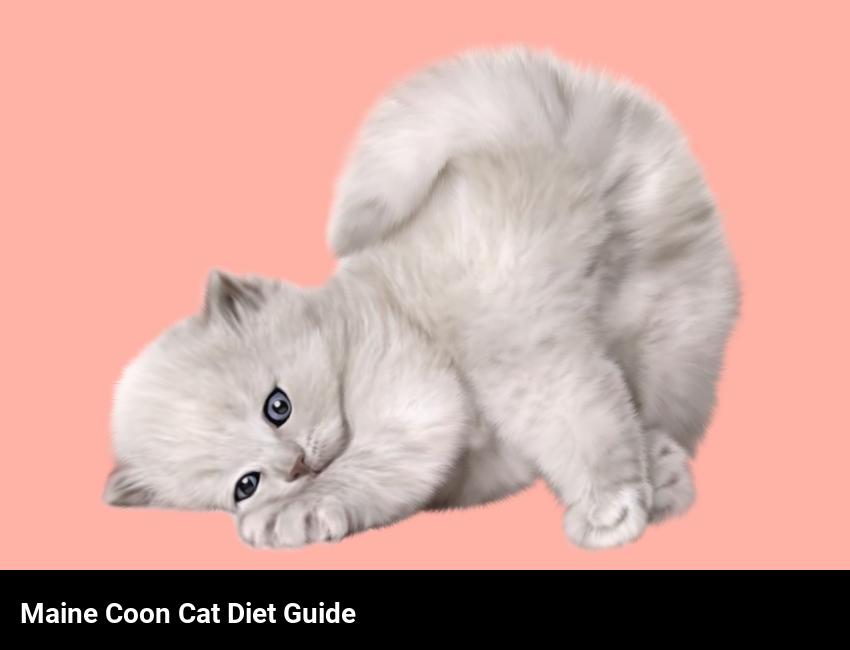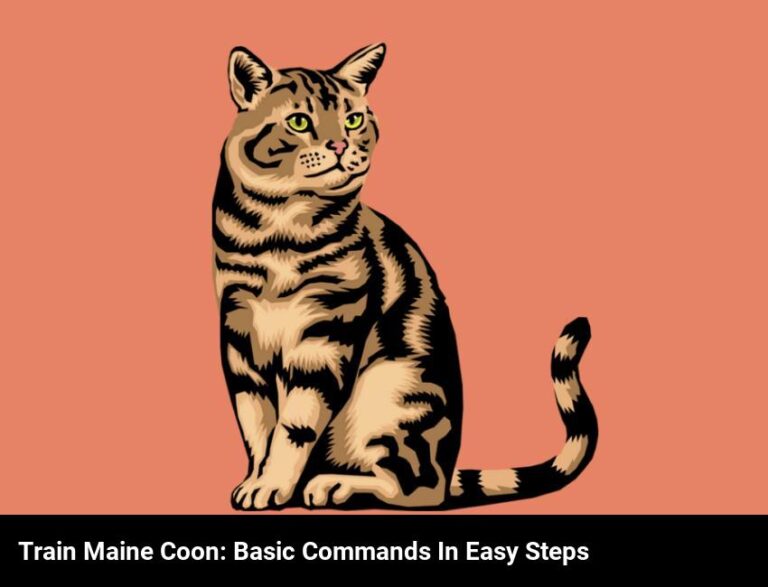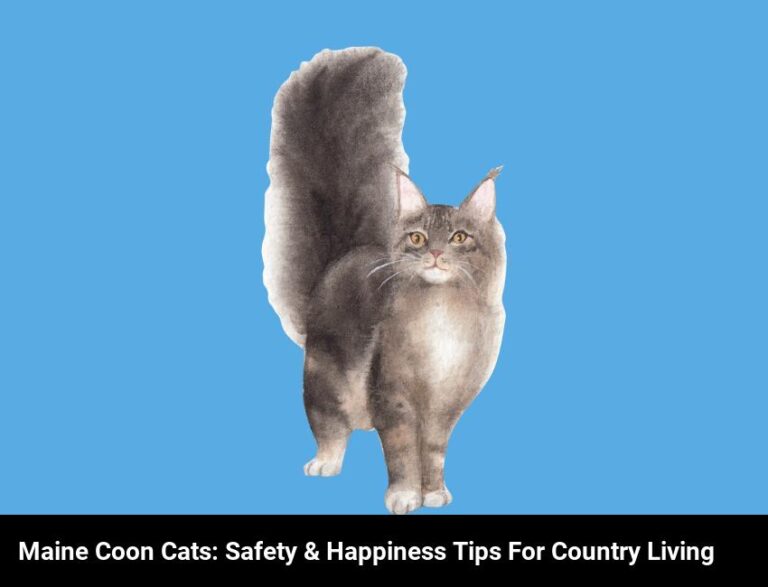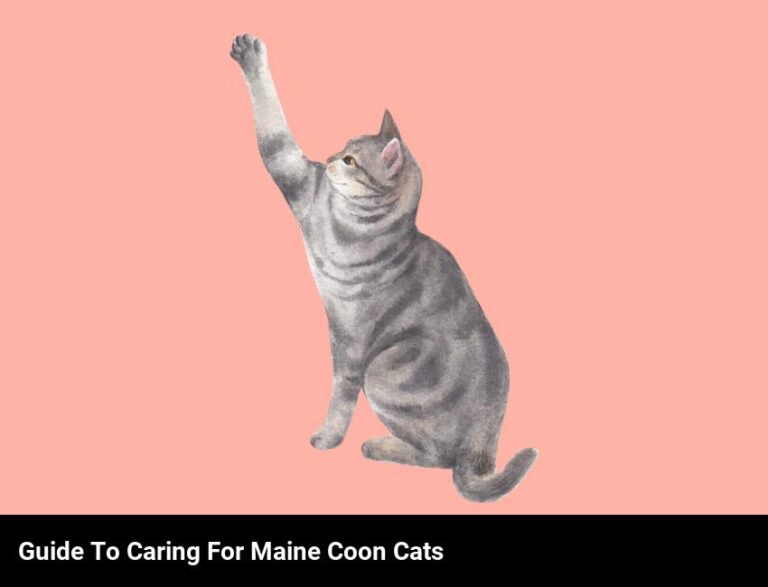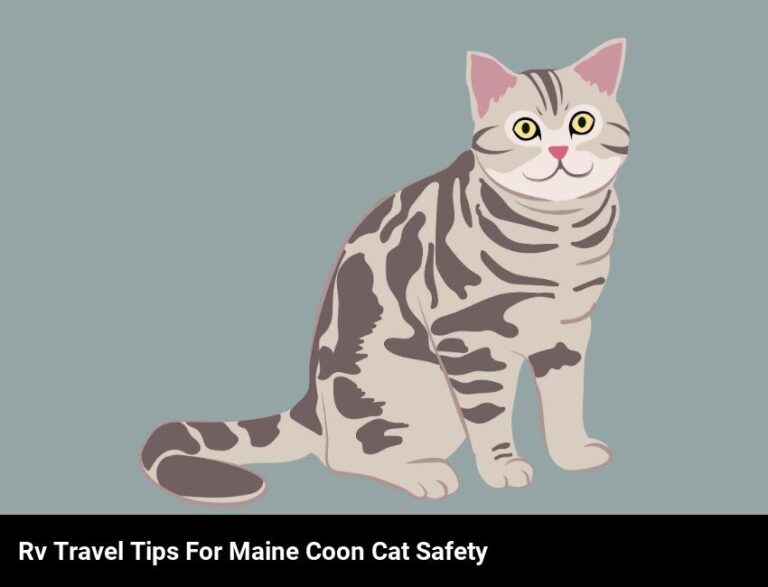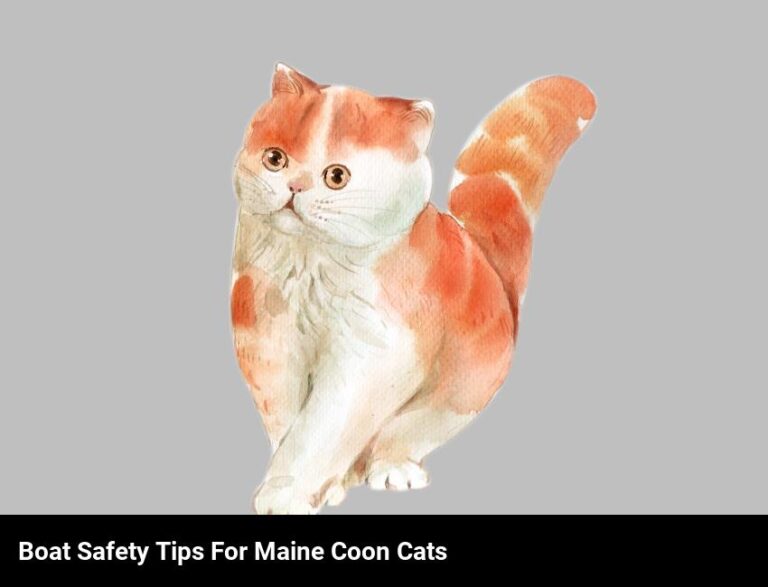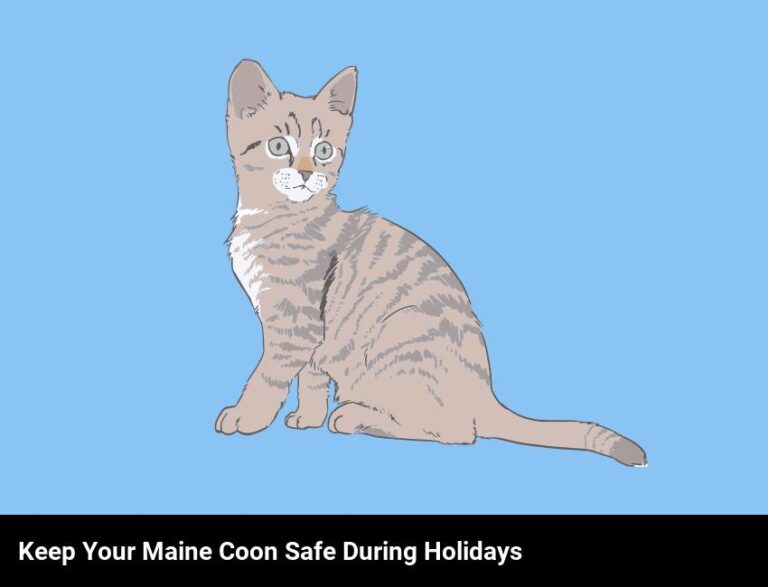What To Feed Your Maine Coon Cat: A Complete Diet Guide
Your Maine Coon cat should be fed a nutritionally balanced diet that is full of protein, fat, carbohydrates, minerals, and vitamins. Look for foods that are specifically designed for your cat’s breed, as they will provide the necessary nutrition and help ensure a healthy, happy cat.
As a Maine Coon Cat owner, I understand the importance of providing my beloved feline companion with the best nutrition possible. Maine Coons are a large and active breed, so they require a well-balanced diet to stay healthy and happy. In this blog, I’ll cover the essential nutritional requirements of Maine Coons, the best wet and dry foods to feed them, the benefits of feeding raw food, and the supplements to consider adding to their diet. I’ll also discuss the signs of a nutritional deficiency and provide some tips for ensuring that your Maine Coon Cat is eating a balanced diet. As a responsible cat owner, I’m passionate about helping other cat owners provide the best nutrition for their Maine Coon cats.
What are the nutritional requirements of maine coon cats?
Maine Coon cats are a unique breed of cat with an appetite to match. While all felines require essential nutrients that can be found in a balanced diet, Maine Coons need a diet with specific caloric, protein, and fat levels to ensure optimal health.
If you’re looking to provide your Maine Coon cat with a nutritious diet, here are the nutritional requirements to consider:
Calorie Intake: Maine Coons are an active breed, so they require more calories than the average indoor cat. Adult Maine Coons need 270-380 calories per day, while kittens need between 300-475 calories.
Protein: Protein is essential for the growth and maintenance of Maine Coon cats. Try to provide high-quality protein sources, such as chicken, fish, and eggs.
Fat: Fat is an important source of energy for Maine Coons, and it’s important to provide a diet that contains 10-20% of fat. Choose sources of healthy fats, such as salmon, tuna, and sunflower oil.
Fiber: Fibre helps keep your Maine Coon’s digestive system healthy. Look for a kibble that contains at least 3% of dietary fibre.
Vitamins & Minerals: Vitamins and minerals are essential for all cats, but Maine Coons need higher levels of certain vitamins, such as taurine and Vitamin A. You can get these vitamins from a variety of sources, such as liver, eggs, and dairy products.
By providing your Maine Coon cat with the essential nutrients they need, you can ensure that they stay healthy and happy for years to come.
What are the benefits of feeding your maine coon cat raw food?
Feeding your Maine Coon Cat raw food has a range of benefits! Here are some of the advantages:
- Improved digestion: Raw food is easier for cats to digest than cooked foods, meaning that your Maine Coon will be able to absorb more nutrients from their meals.
- Shinier coat: Raw food contains essential fats and fatty acids, which help to keep your Maine Coon’s coat and skin healthy and shiny.
- Increased energy: Raw food is rich in proteins and vitamins, which provide your Maine Coon with more energy and help them stay active and alert.
- Healthier immune system: Raw food is high in nutrients that support your Maine Coon’s immune system, helping them stay healthy and strong.
- More variety: Raw food gives you the opportunity to offer your Maine Coon a greater variety of flavors and textures, so they can enjoy different meals each day.
- Better nutrition: Raw food contains all of the necessary nutrients your Maine Coon needs to stay healthy, so you can be sure that they’re getting all the nutrition they need.
What are some tips for making sure your maine coon cat is eating a balanced diet?
Feed your Maine Coon cat a high-quality, complete, and balanced diet that is specifically formulated for their size, age, and activity level.
- Make sure their diet is made up of mostly wet food, as this is closer to what their natural diet would be in the wild.
- Provide plenty of fresh water for your cat to stay hydrated.
- Monitor portion sizes and be sure not to overfeed your cat, as Maine Coons can become overweight if they consume too many calories.
- Mix up their diet with different types of wet and dry food to ensure they are getting a balanced and varied diet.
- Provide crunchy treats that are high in protein but low in carbohydrates.
- If you’re introducing new types of food, do it gradually to ensure your cat doesn’t have any adverse reactions.
- Consider adding supplements to your Maine Coon’s diet to provide extra vitamins and minerals if needed.
What are the best wet and dry foods for maine coon cats?
When it comes to the best wet and dry foods for Maine Coon cats, you have plenty of options. For wet foods, look for options that are high in protein, such as chicken, turkey, or fish. You also want to make sure the wet food is free of unnecessary fillers and additives. For dry foods, look for options that are grain-free, as grains can be difficult for cats to digest. Look for high-quality proteins such as chicken, duck, or salmon.
If you want to give your Maine Coon cat some variety in their diet, consider adding in some wet food options with different flavors and textures. You can also add a bit of canned pumpkin or plain yogurt to their wet food to provide a source of healthy probiotics.
In addition to wet and dry foods, you can also give your Maine Coon cat some raw food. This can include raw meat, eggs, or even some cooked vegetables. When feeding your Maine Coon raw food, make sure it is from a reputable source and has been properly prepared to avoid any food-borne illnesses.
No matter what wet and dry foods you choose for your Maine Coon cat, make sure that all of their meals are balanced and nutritious. You should also make sure to provide them with plenty of fresh water to keep them hydrated. With the right diet, your Maine Coon cat will be happy and healthy.
What supplements should you consider adding to your maine coon cat’s diet?
When it comes to Maine Coon cats, there are many supplements you should consider adding to their diet. Here are some of the most important ones:
- Omega-3 Fatty Acids: Omega-3 fatty acids have been linked to promoting healthier skin, fur and overall wellbeing for cats. They can help reduce inflammation, improve coat and skin health, and support the immune system.
- Probiotics: Probiotics are beneficial bacteria that help maintain a healthy gut flora, thus promoting better digestion and nutrient absorption. They can also help reduce the risk of infections and illnesses, as well as support healthy skin and coat.
- Vitamin E: Vitamin E is an important vitamin for cats and is essential for healthy skin and coat, as well as eye and muscle health. It can also help boost the immune system and brain function.
- Multivitamins: Multivitamins or “complete” vitamins can help ensure your cat is getting all the essential vitamins and minerals they need. They can help promote healthy fur, skin, and bones, as well as support the immune system.
- Glucosamine: Glucosamine is an important supplement for cats, as it helps maintain joint health, reduce inflammation, and improve mobility. It is also important for maintaining healthy bones and joints.
These are just some of the supplements you should consider adding to your Maine Coon cat’s diet. Do your research and talk to your veterinarian to ensure you are giving your cat the best supplements for their individual needs. With the right supplements, your Maine Coon cat can have a long and healthy life.
What are the signs of a nutritional deficiency in maine coon cats?
When it comes to the health of your Maine Coon cat, nutrition plays an important role. It is important to monitor your cat’s diet and know what to look out for if they may be suffering from a nutritional deficiency.
The most common sign of a nutritional deficiency in Maine Coon cats is weight loss. If your cat is losing weight without any other changes in their diet or activity level, then it is likely that they are not getting the nutrients they need. Other signs to watch for include changes in their coat, increased water consumption, poor immune system, and changes in their stool.
Another indicator of a nutritional deficiency in Maine Coon cats is a decrease in energy levels. If your cat’s activity level has decreased or they seem to be sleeping more, it could be a sign that their body is lacking the nutrients it needs to stay healthy.
Finally, if your Maine Coon cat is displaying any signs of illness, it could be a sign of a nutritional deficiency. These symptoms may include vomiting, diarrhea, coughing, and sneezing. If your cat is exhibiting any of these symptoms, it is important to take them to the vet as soon as possible to diagnose the problem.
If you suspect that your Maine Coon cat may be suffering from a nutritional deficiency, it is important to address the problem as soon as possible. Talk to your vet about the best diet for your cat and make sure they are getting the nutrients they need. With the proper diet and care, your Maine Coon cat can live a long, healthy life.
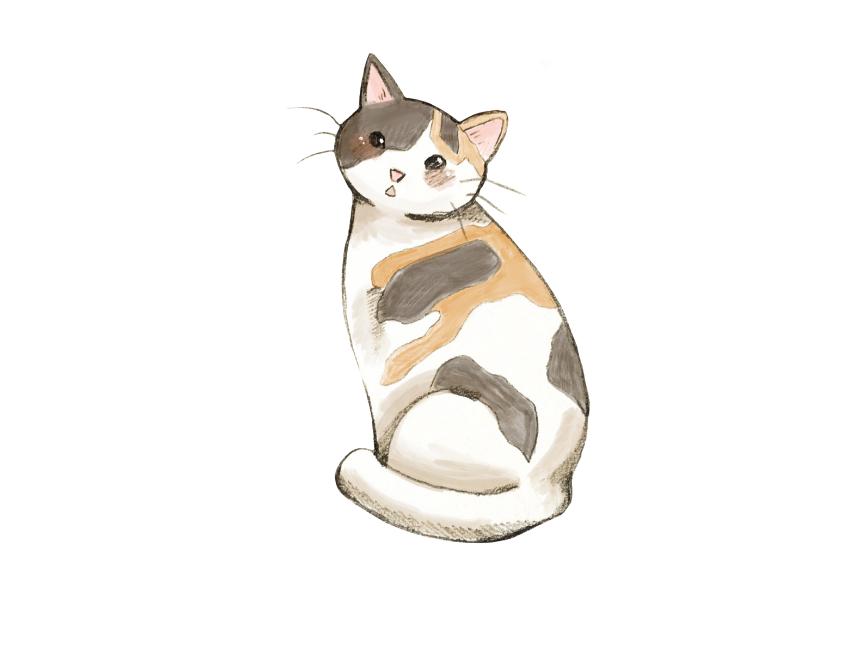
Frequently Asked Questions
What are the best foods to include in your maine coon’s diet?
When feeding your Maine Coon, the best foods to include in their diet are high-quality, protein-rich wet food, supplemented by occasional servings of high-quality dry food. These should be specifically tailored to the cat’s age, size, and activity level. Provide plenty of fresh, clean water at all times. Treats can also be offered, but should not exceed 10% of their total daily food intake.
How can you make sure your maine coon cat is getting the right nutrients?
To ensure your Maine Coon cat is getting the right nutrients, it’s important to provide a nutritionally balanced diet. Feed your cat a quality dry food or canned wet food specifically formulated for the Maine Coon breed. You can also supplement with tasty treats and fresh, human-grade ingredients like boiled chicken or eggs. Additionally, be sure to offer clean, fresh water daily, and monitor your cat’s weight and eating habits to ensure they’re getting the right amount of nutrients for their size and age.
Is there anything special you should do to ensure your maine coon has a balanced diet?
Yes! It’s important to feed your Maine Coon a balanced diet. Make sure you choose a high-quality, species-appropriate cat food that contains plenty of protein and healthy fats, and is free of fillers and artificial additives. Make sure you provide fresh water and that your cat has access to it at all times. Feed your Maine Coon multiple small meals throughout the day instead of one large one and provide a variety of food. Consider supplementing their diet with some wet food, non-starchy vegetables, and/or healthy treats.
How can you tell if your maine coon cat is getting enough of the right foods?
To check if your Maine Coon cat is getting enough of the right foods, look for signs of healthy weight and energy levels. A well-balanced diet should provide them with enough energy to be active and alert. Monitor your cat’s weight – if it is gaining too much, reduce their food intake. Also, look out for signs of anemia or dehydration, and contact your vet if you are concerned.

